Publications
Articles, publications, books, tools and multimedia features from the U.S. Institute of Peace provide the latest news, analysis, research findings, practitioner guides and reports, all related to the conflict zones and issues that are at the center of the Institute’s work to prevent and reduce violent conflict.

Keith Mines on Secretary Blinken’s Trip to Colombia
As Secretary of State Antony Blinken travels to Colombia, USIP’s Keith Mines notes there is still work to be done in implementing and expanding the 2016 peace agreement with the FARC insurgency, saying that “consolidating the peace in a place like Colombia was almost as hard as fighting the war itself.”
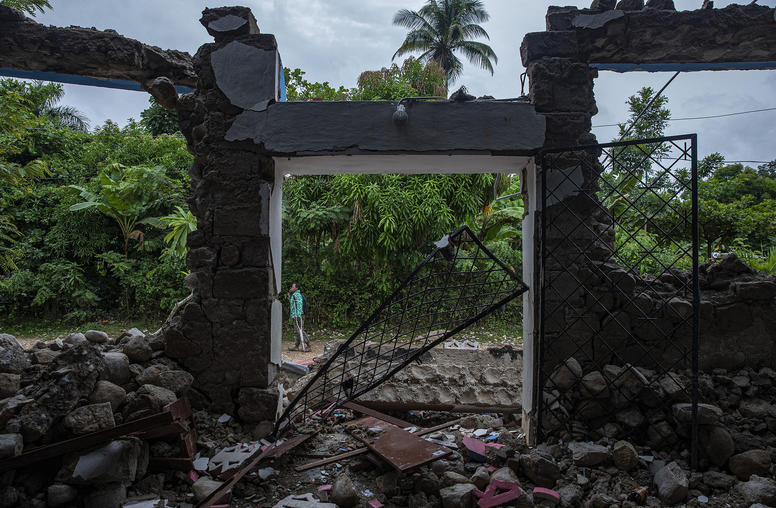
A Plan for Haiti’s Growing Fragility: U.N. Action That’s Equal to the Challenge
When throngs of Haitian migrants rushed the U.S. border recently, it was only the latest manifestation of a society battered by trauma. In just the previous two months, Haiti had seen the murky assassination of its president, devastating floods and an earthquake that killed thousands and wiped out nearly 140,000 homes. As fragile states go, Haiti is in a league all its own. To avoid a repetition of the scene at the border — or one that’s worse throughout the hemisphere — it is time to consider a long-term, robust U.N. mission that matches the scale of the challenge with the size and persistence of the international response.
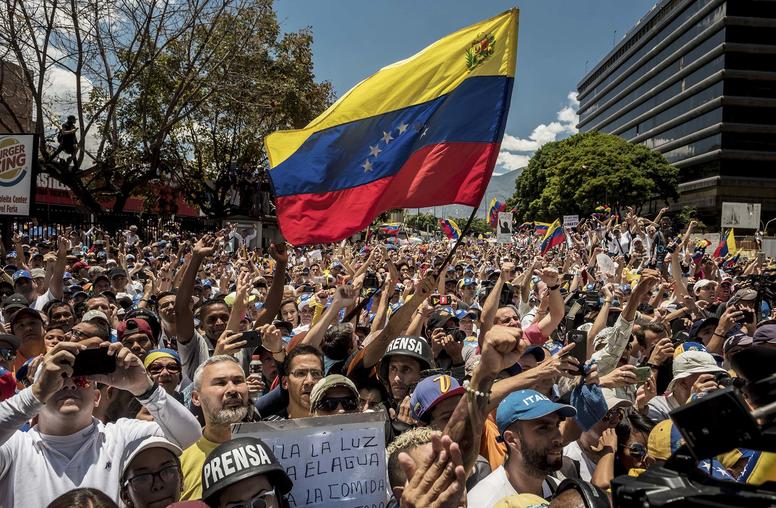
Is there a Negotiated Path to Democratic Coexistence in Venezuela?
The scale of the Venezuela crisis is unique in recent history, with wartime indicators of hunger, refugees, and human rights abuses but conventional violent conflict largely absent. At the heart of the crisis is a 20-year struggle between the Chavista regime and the democratic opposition, characterized for most of these two decades by each side attempting to eliminate the other from the political map. Negotiations are seen by most outside observers as the only way the conflict will definitively end and there have been consistent efforts to bring the two sides to the table, most recently in Barbados and Oslo in 2019.

Keith Mines on the Future of U.S. Latin America Policy
Intense polarization in Bolivia, Venezuela, and Colombia will present Washington with significant challenges in the years ahead. But USIP’s Keith Mines says, for the most part, leaders in those countries “are looking for a way forward … there’s a more realistic framework of coexistence that’s emerging.”

Keith Mines on Venezuela’s Spiraling Humanitarian Crisis
The humanitarian crisis in Venezuela is reaching proportions not seen in Latin America since the 1930s. Meanwhile, USIP’s Keith Mines says the country is at a “tragic impasse, and that impasse is entirely political,” as both Juan Guaidó and Nicolás Maduro maintain their respective claims to power.

Venezuela: Could the Coronavirus Threat Be an Opportunity?
Helping Venezuela resolve its political crisis will be vital to containing the potentially catastrophic COVID-19 pandemic there. A truce in the country’s power struggle is urgent, and last week’s U.S. proposal for a transitional government offers useful ideas, even for a naturally skeptical governing regime. Advancing them would benefit from mediation, perhaps by the Vatican or the United Nations, and will require cooperation among the major powers—the United States, Russia and China—involved in the crisis. If Venezuelans and outsiders can join against the common human threat of coronavirus, that could lay foundations for an eventual political solution to the decade of turmoil that has brewed the hemisphere’s worst humanitarian disaster.
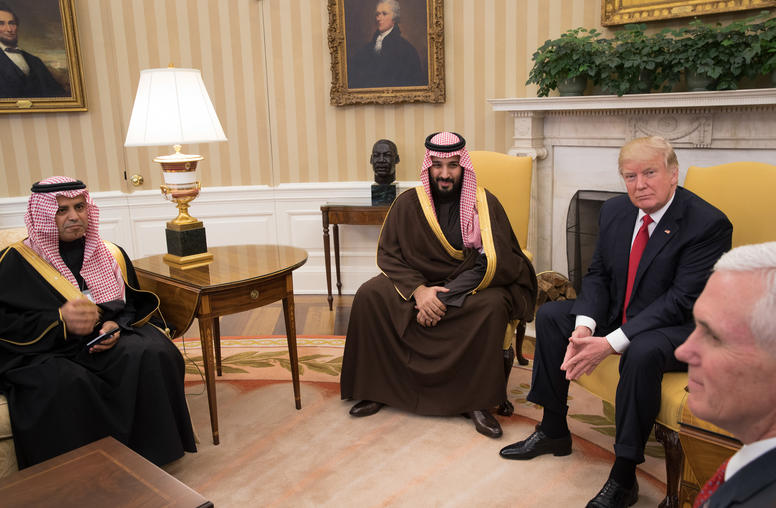
Trump Trip: Time to Dust off the Arab Peace Initiative?
President Trump’s upcoming summit with Saudi Arabia’s King Salman bin Abd Al-Aziz rounds out his meetings with the five most powerful friendly leaders in the region. The first four in Washington with the heads of state from Egypt, Jordan, Turkey and Israel all produced common themes: the campaign against ISIS and terrorism, the challenge of Iran, the turmoil of collapsing states in Syria and Yemen. But in the immediate background is the Israeli-Palestinian peace process which the president has said is a top priority for his administration.
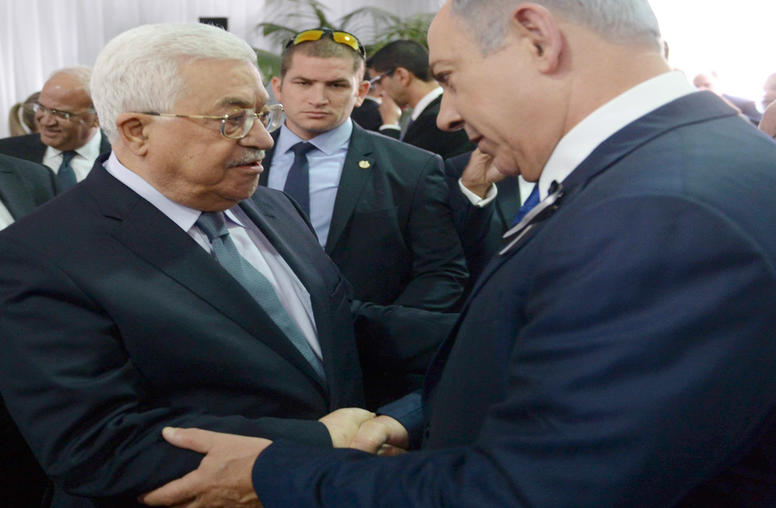
As Abbas Meets Trump, This Time Might Be Different
When President Donald Trump hosts Palestinian President Mahmoud Abbas on May 3, their discussion is bound to pivot on how to get the Palestinians and Israelis back to the negotiating table in a format that will have a better-than-even chance of success. In a March telephone conversation between the two, the new U.S. leader “emphasized his personal belief that peace is possible and that the time has come to make a deal,” according to the White House.
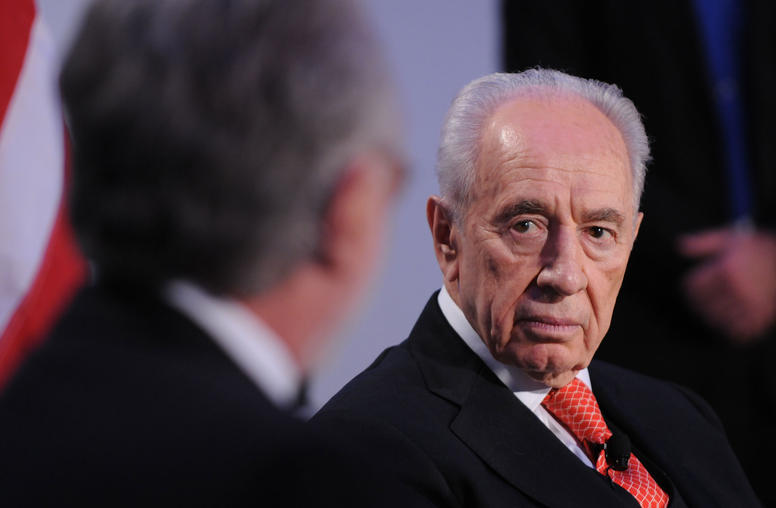
Peres, in Pursuit of Peace, Advanced Power of the People
Shimon Peres served twice as Prime Minister of Israel and most recently as President. He was awarded the Nobel Peace Prize in 1994, along with Yitzhak Rabin and Yasser Arafat, for securing the Oslo peace accords, and he never stopped believing in the agreement’s principals and main contours for a two-state solution.